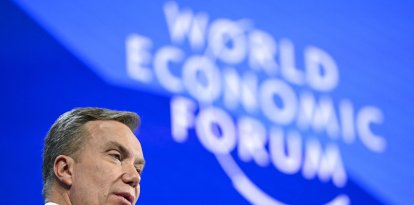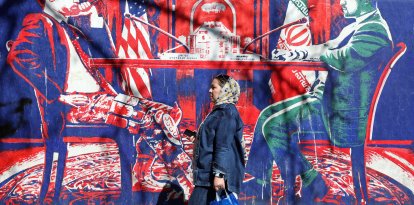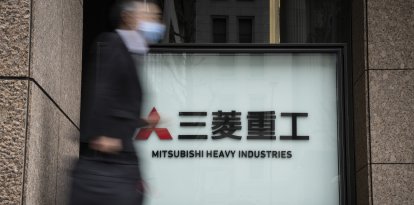UK caves in to China's colonialist advances in Indian Ocean
The administration under the Labour Party's Keir Starmer has come under fire in the United Kingdom and the United States for ceding the strategic Chagos Archipelago to Mauritius, a close ally of Beijing.
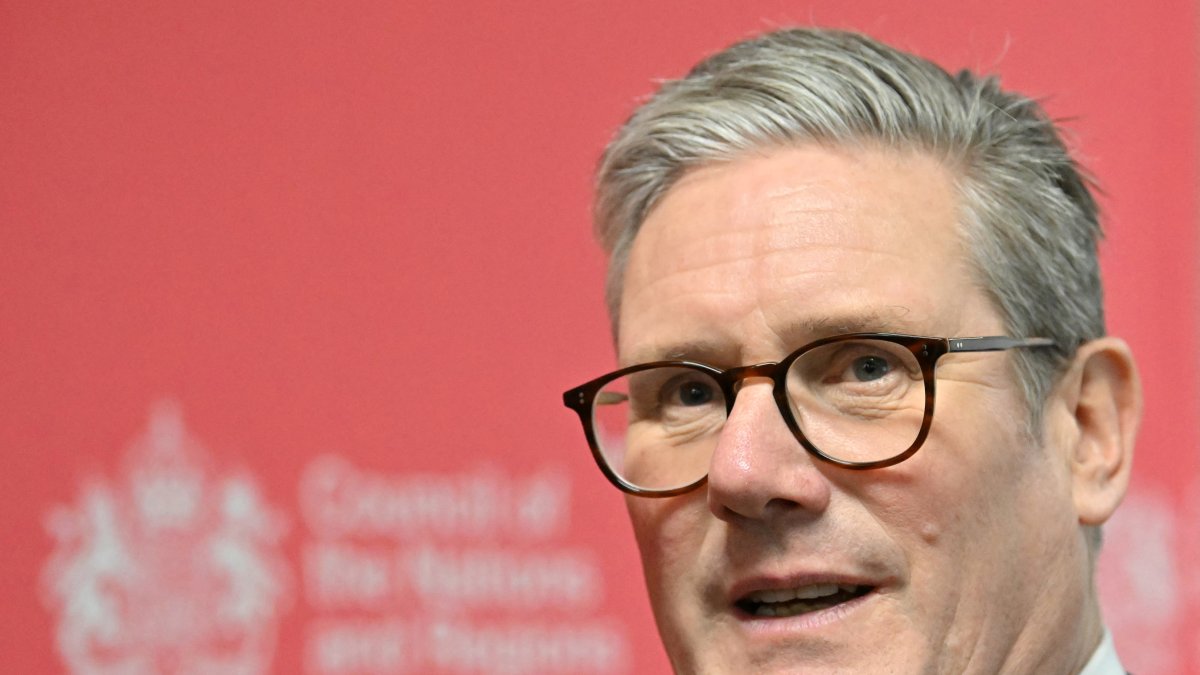
Keir Starmer, prime minister of the United Kingdom.
The U.K. Labour government, led by Prime Minister Keir Starmer, announced in early October that after two years of talks, it reached an agreement with Mauritius to transfer sovereignty over the Chagos Archipelago, the last British territory in Africa.
Mauritius has been claiming the archipelago, which includes 60 islands and has a population of about 3,000, since it gained independence from the United Kingdom in 1968.
The archipelago has a strategic location in the middle of the Indian Ocean, some 2,000 miles east of Africa.
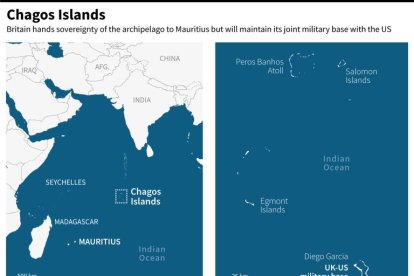
The Chagos Archipelago will be under the sovereignty of Mauritius.
As part of the agreement, Mauritius agreed that island of Diego Garcia, where there is a British and U.S. military base, will remain under U.K. sovereignty for a period of 99 years, because, as the British pointed out, it plays a vital role in regional and global security.
The agreement was influenced by the International Court of Justice (ICJ), since it ruled five years ago that the U.K. should relinquish its control over the archipelago. The judges also noted that the British had forced local residents from their homes.
Did the UK cede power to China?
The deal has generated strong criticism in the U.K., as many see it as a show of weakness at a geopolitical level, especially since Mauritius is a close ally to China.
British M.P. Tom Tugendhat, who aspires to lead the Conservative Party, warned that the ceding of the archipelago to Mauritius opens up the possibility of China succeeding in establishing a military presence in the Indian Ocean.
Journalist Charles Moore also took aim at the deal in an article published in The Telegraph.
He argued that the decision is one of several made on foreign issues that appeal to Jeremy Corbyn, the radical leftist who led the Labour Party between 2015 and 2019, since under his general principle, in any international dispute, the interests of Britain and the United States should always be opposed.
Moore expressed surprise and disappointment with the current British prime minister, as he had initially firmly rejected the obsessions of Corbynism. Indeed, in October 2023, after the atrocities of Oct. 7 committed by Hamas in Israel, Moore recalled that Starmer was quick to endorse Israel's right to self-defense, with the intention of squelching the slanders of Islamists and the far left about Israeli genocide.
Moore remarked that in the face of the emergence of a powerful axis of evil, composed mainly of China, Russia, Iran and North Korea, which have interests that conflict with the West and thus act in concert against it, it is necessary to do what is possible to counter.
However, Moore pointed out that the British government has caved in to a country allied with a power like China, which, as stated by former U.S. Secretary of State Mike Pompeo in an interview conducted by the journalist, is carrying out the most profound influence operation of influence in the history of civilization. This campaign is greatly amplified by technology, which includes communicating with young people via TikTok, attempting to affect election results, spying on U.S. state governments, penetrating universities, stealing intellectual property, spying on and monitoring Chinese students in the West and inserting surveillance into electric vehicles.
Moore added that while the U.K. has forgotten the geopolitical importance of sea lanes, deep ports and proper channels from sea to sea, China has learned it. This is evidenced by its global infrastructure development and international cooperation strategy, called the Strait and Road Initiative.
Moore cautioned that the U.K. may think it has little use for Mauritius and the Chagos Archipelago, but China understands well the point of having outposts all over the ocean.
The author noted that the West, despite having greater prosperity, technology and potential arsenals, seems strangely reluctant to measure the realities of power. He remarked that its hesitation rarely ends up stopping violence.
"Why do we support Israel or Ukraine, but then wring our hands when they, both fighting existential battles, want to do what they need to win?" the author asked.
The British government is 'the only teenager who still believes in Santa Claus'
Journalist Sam Bidwell also wrote a critical article for The Telegraph.
The author argued that despite the 99-year lease of the military base on Diego Garcia, with enough pressure from Beijing, it may not be long before there are Chinese naval vessels there.
Regardless of what the agreement says, the British are leaving a major military outpost vulnerable to a geopolitical competitor, Bidwell warned.
He argued that the government's decision is probably due more to a complete failure to understand the purpose of foreign policy. He added that his country is perhaps the only one in the world that still believes in a rules-based international order, which, he noted, is "a little like being the only teenager who still believes in Santa Claus."
Bidwell also asserted that instead of securing the country's interests abroad, successive administrations have used foreign policy as a tool to impress the left.
He concluded that nebulous concepts such as "international prestige" represent a very real risk to the U.K.'s security interests abroad.
Criticism of the agreement in the United States
Criticism also came from the United States, where Republican Sen. Marco Rubio warned that the deal will provide China with the opportunity to collect valuable information about the U.S. naval facility.
Another Republican senator who lambasted the U.K. Labor government's decision was Jim Risch, who pointed out that the agreement yields to pressure from the International Court of Justice, to the detriment of the interests of the U.S. and the U.K.
Risch argued that the United States and its allies must have a long-term policy regarding decisions that affect their strategic competition with China.
The close relationship between China and Mauritius
As mentioned, the Chagos Archipelago is strategically located. It is a route through which most Chinese exports to Europe pass, and the agreement was signed three years after the Mauritian government sealed a free trade agreement with China.
Now, Mauritius will have authority over the entry of ships into the region, and the fear is that Beijing will disguise them as fishing vessels to gather intelligence.
Unlike Chagos, there is already a strong Chinese presence in Mauritius. A company from the Asian country built the main terminal of Sir Seewoosagur Ramgoolam Airport in the African nation, which was completed in 2013. In addition, the headquarters of the public broadcasting corporation and a dam were also built by Chinese companies.
Likewise, last December, Mauritius and China closed a foreign exchange deal worth $281 million.
In the coming years, the Chinese presence in Mauritius is expected to deepen, especially in the energy sector.















